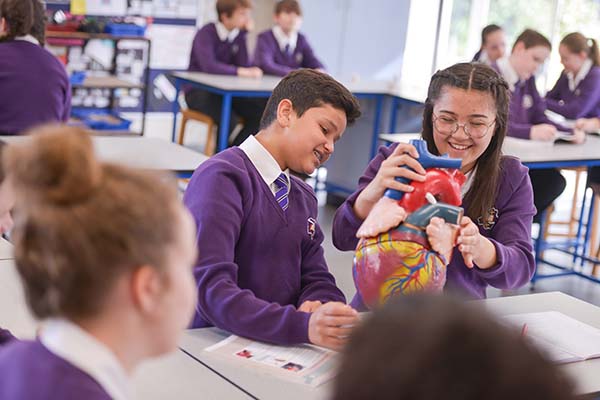
The aim of our Key Stage 3 Science course is to consolidate and extend the science knowledge that the students have been taught at Key Stage 2 and to ensure that they are fully prepared for all aspects of the GCSE Science course with the ultimate goal that many will go onto study A-levels in our subject. Students study Biology, Chemistry and Physics at Key Stage3. The work is divided up into a number of discrete Biology, Chemistry and Physics units which are taught from an in-house scheme, Exploring Science and Activate texts. We value the learning of science through practical work and there is a big emphasis on developing student’s practical skills so that they are fully prepared for the Required Practical Tasks and PAGS that they will do in GCSE and A-Level science respectively. Practical work takes place in fully fitted laboratories and in the spring and summer terms students are also taken outside to work at the pond and garden areas.
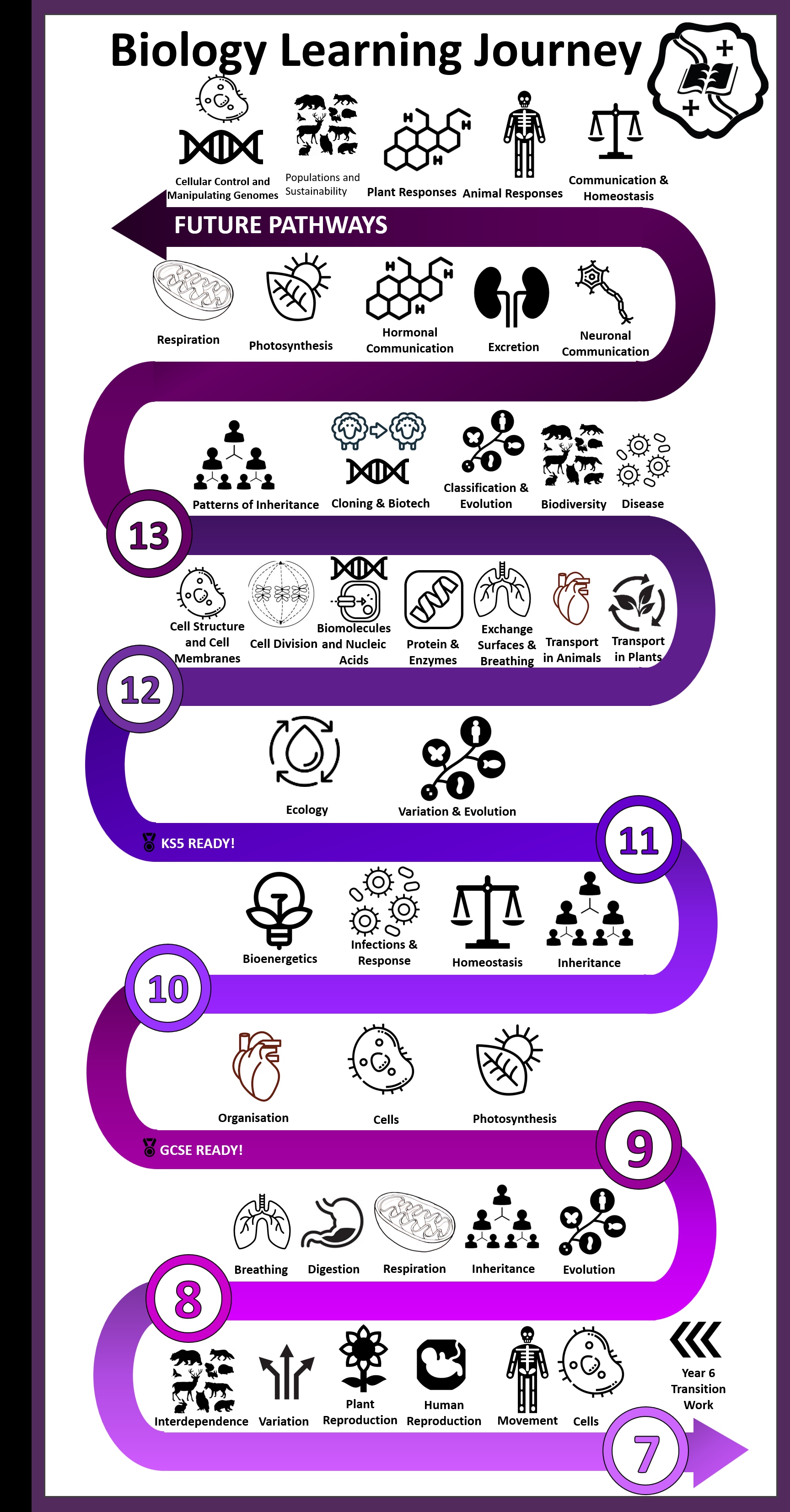
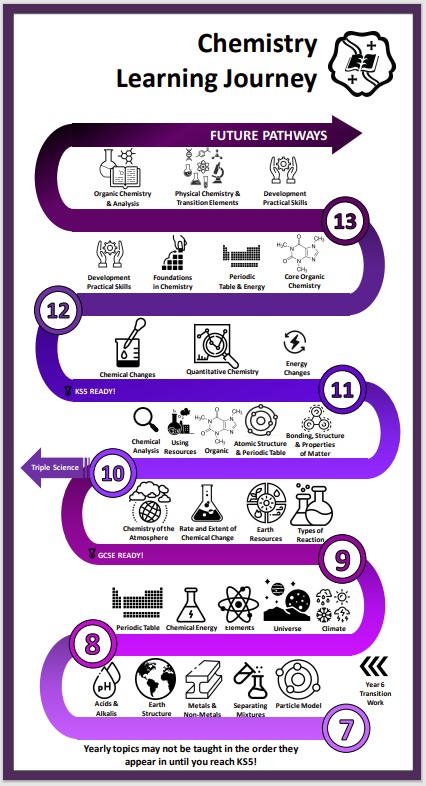
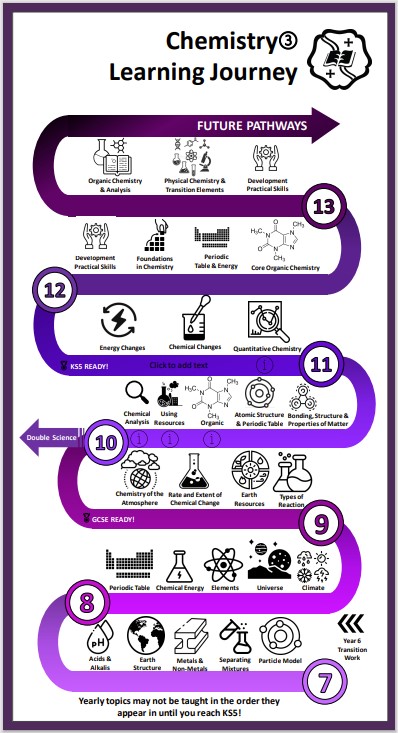
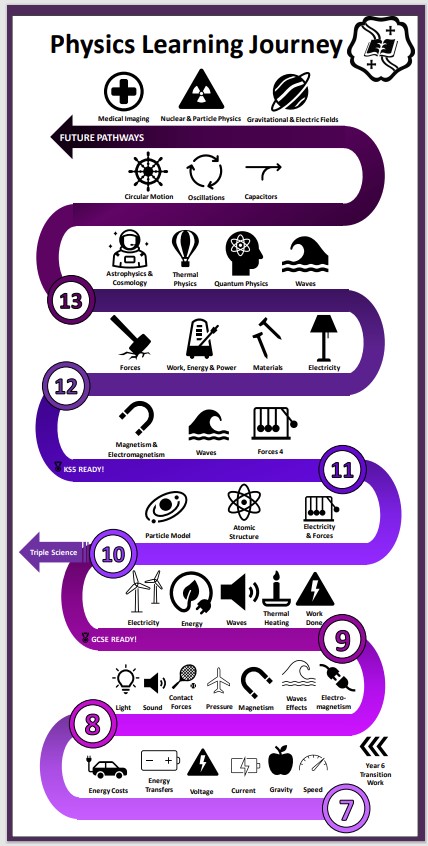
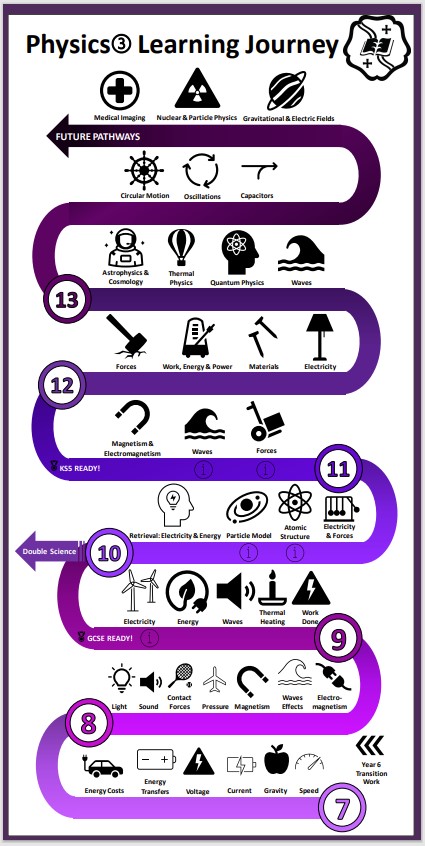
This option does not take up an 'Option Choice' and instead uses the existing 10 hours for double science and two hours are also used from EPD and PE Core giving 12 hours in total split as 4 hours each for Biology, Chemistry and Physics.
Science is a compulsory subject at GCSE. Separate Science is an alternative provision which includes studying each Science in more detail culminating in 3 GCSE grades, one for each Science. Our Separate Science course is a popular course at GCSE, particularly for those who want to pursue a career in the sciences. Students will have a total of 12 hours spread over a fortnight instead of the 10 hours offered to all students studying the Combined Science course.
Exam Board: AQA
Qualification Title: Separate Science: Bio, Phy and Chem
Qualification Specification Code: 8461 – GCSE Biology
8462 – GCSE Chemistry
8463 – GCSE Physics
Qualification Webpage: Click here to visit the AQA webpage for the specification.
The course aims to give students opportunities to:
• Develop their interest in, and enthusiasm for, science
• Develop a critical approach to scientific evidence and methods
• Acquire and apply skills, knowledge and understanding of how science works and its essential role in society
• Acquire scientific skills, knowledge and understanding necessary for progression to further learning.
To opt for this course, students must be predominantly achieving excellence at Key Stage 3. If in doubt, please clarify with your Science teacher. Due to the rigorous nature of the course we only offer Separate Science to the students who have shown an enthusiasm towards Science, an excellent work ethic and consistently high attainment across the three sciences.



Combined Science is assessed through 6 terminal examinations taken at the end of Year 11. The papers are a total of 1hour 45 minutes and assess different parts of the course with some overlap across all the modules. There are a total of 6 papers and the units being assessed in each examination are outlined below:
Biology
Paper 1 – Cell Biology; Organisation; Infection and Response; Bioenergetics
Paper 2 – Homeostasis and Response; Inheritance; Variation and Evolution; Ecology
Chemistry
Paper 1 – Atomic Structure; Bonding, Structure and the Properties of Matter; Quantitative Chemistry; Chemical Changes; Energy Changes.
Paper 2 – Rate and Extent of Chemical Change; Organic Chemistry; Chemical Analysis; Chemistry of the Atmosphere; Using Resources.
Physics
Paper 1 – Energy, Electricity; Particle Model of Matter; Atomic Structure
Paper 2 – Forces; Waves; Magnetism and Electromagnetism; Space Physics
There are a huge range of vocations which are available to students who have a scientific career in mind. Just some of these are listed below:
Analytical chemist
Animal technician
Biomedical engineer
Biomedical scientist
Clinical psychologist
Clinical research associat
Clothing/textile technologist
Colour technologist
Community pharmacist
Doctor
Environmental health practition
Food technologist
Forensic scientist
Healthcare scientist
Hospital pharmacist
Metallurgist
Meteorologist
Microbiologist
Midwife
Nanotechnologis
Oceanographe
Plant breeder/geneticis
Research scientis
Scientific laboratory technician
Teaching laboratory technician
Toxicologist
Vet
Water quality scientist
Mrs Chapman
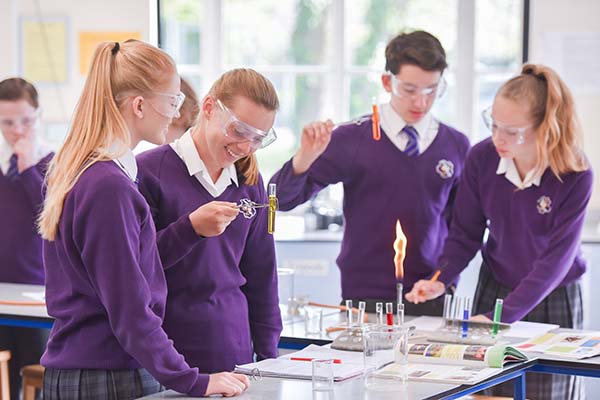
Owned by: MDS | Last Published: 20/09/2019 09:53:36 | Next Update: N/A